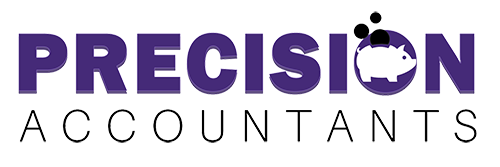As a business owner nearing retirement, planning for your financial future is essential. One of the most effective ways to secure a comfortable retirement is through tax-efficient retirement strategies. Navigating tax planning for retirement is crucial to ensure you maximise your wealth while minimising tax liabilities.
This blog outlines key strategies and tips to help UK business owners prepare for a tax-efficient retirement. You can speak to our professional chartered accountants to discuss your retirement-specific tax planning. We’d love to help you – call 01732 387 059 today.
Thoughts of retirement stealing your peace of mind? Stop worrying and turn to us – we’ll help you with self-assessments, strategic tax planning, personalised advice, and more.
Tax-Efficient Retirement Strategies For UK Business Owners
1. Pension Contributions
Making pension contributions is one of the most effective tax-efficient retirement strategies for UK business owners. By contributing to a personal pension or a self-invested personal pension (SIPP), you benefit from tax relief on contributions, which reduces your taxable income.
Additionally, pensions grow tax-free, and you only pay tax on withdrawals when you retire. This dual benefit makes pensions a key tool in building a tax-efficient retirement.
2. Use Of ISAs (Individual Savings Accounts)
ISAs are a flexible and tax-efficient way for business owners to save for retirement. You can contribute up to £20,000 annually across cash ISAs, stocks and shares ISAs, and innovative finance ISAs. Returns from ISAs are free from both income tax and capital gains tax, making them ideal for long-term savings.
This way, you can grow your retirement savings tax-free, with the flexibility to access funds if needed before retirement without incurring tax charges.
3. Deferring Income
Deferring income is an effective strategy for business owners who wish to reduce their tax liability during retirement. By delaying some of your income until you retire, you could potentially pay tax at a lower rate.
For example, if your retirement income is lower than your working income, deferring earnings can push you into a lower tax bracket. This strategy is especially useful for business owners who have flexibility in timing their income and want to manage their tax obligations.
4. Capital Gains Tax Planning
Capital gains tax (CGT) is a significant concern for business owners, especially when selling business assets. To reduce CGT liability, you can take advantage of Business Asset Disposal Relief (formerly Entrepreneurs’ Relief), which allows you to pay a lower rate of CGT when selling all or part of your business.
Strategic tax planning, such as timing the sale of assets and making use of annual exemptions, can significantly reduce the tax burden, helping you preserve more of your wealth.
5. Taking Advantage Of Tax-Advantaged Retirement Accounts
Utilising tax-advantaged retirement accounts is a crucial element of tax-efficient retirement planning. These accounts, such as pensions and ISAs, offer significant tax benefits that help grow your savings faster.
By maximising these accounts, business owners like yourself can build a robust retirement fund, ensure their assets grow without the burden of excessive tax, and maintain a steady income during retirement with minimal tax impact.
Tips For Minimising Taxes In Retirement
Once you approach retirement, managing your income and savings becomes even more important. Here are a few tips for minimising taxes during this phase:
1. Plan Your Income Withdrawals Carefully
In retirement, consider withdrawing funds from tax-efficient accounts, such as pensions or ISAs, in a strategic manner. By managing the timing and amount of withdrawals, you can ensure you remain in a lower tax bracket and reduce your overall tax liability.
2. Explore Tax-Free Investments
Consider investing in assets that offer tax-free returns, such as tax-free government bonds or tax-efficient property investments. These investments help you preserve your wealth without triggering excessive taxes.
3. Regular Tax Reviews
Tax laws change, so regular tax reviews are essential. This helps ensure your retirement planning remains aligned with current tax regulations at all times to avoid pitfalls.
4. Consult With Tax Professionals
Working with a tax professional can help ensure that you make the most of available tax reliefs and reduce your tax liabilities. Professional guidance can make a big difference in retirement planning and maintaining long-term financial health.
CONTACT PRECISION ACCOUNTANTS
Precision Accountants – For Expert Retirement Tax Planning Services
At Precision Accountants, we work with businesses of all sizes and from various industries to provide tailored accounting services and expert tax planning for retirement. Our team specialises in managed accounts and retirement tax strategies designed to save you money and free up your time.
Whether you’re a sole trader or a larger limited company, we deliver services that fit your needs, including self-assessment for tax purposes, VAT returns, and comprehensive financial reviews. Let us help you grow and succeed by making your retirement planning as efficient and tax-advantageous as possible.
Call us to arrange an expert consultation.
Conclusion
For business owners approaching retirement, tax-efficient strategies are essential for protecting wealth and ensuring a comfortable future. By using tax-advantaged retirement accounts, making strategic pension contributions, and planning for capital gains tax, you can maximise your retirement savings and minimise tax liabilities.
For expert advice and tailored retirement tax planning services, our team at Precision Accountants is here to guide you every step of the way. Start your retirement planning today, and ensure your business and personal finances are in the best possible shape for the future.
